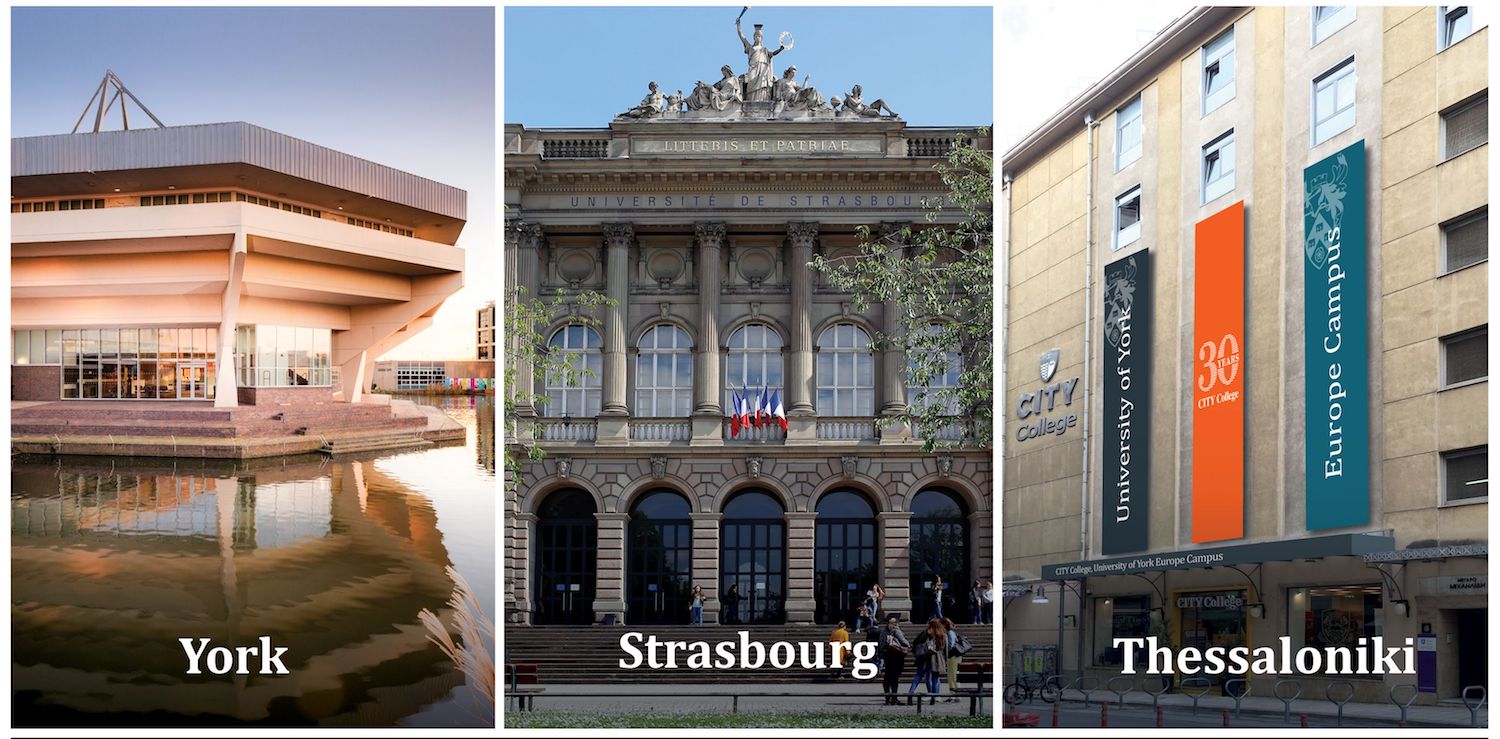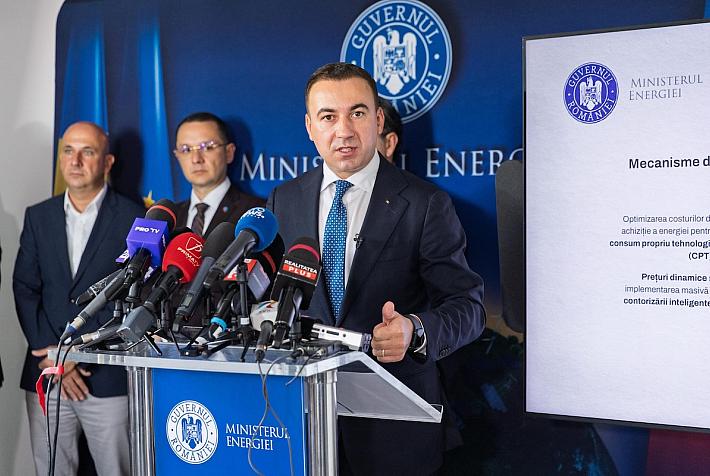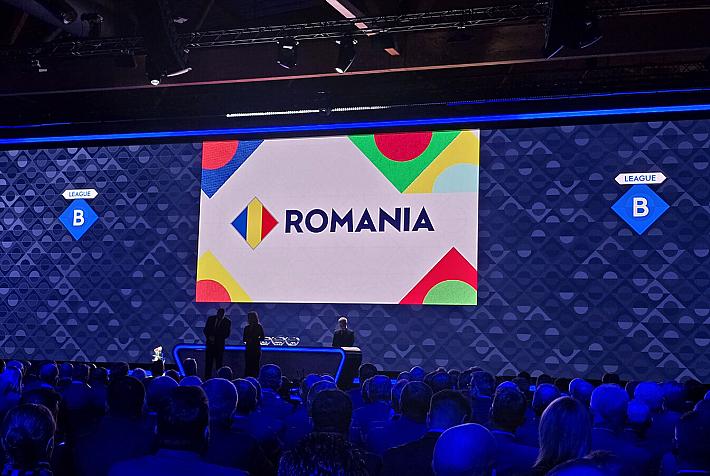This interview was written by the Romania-Insider team for City College.
Thierry Burger-Helmchen, Prof. of Management Science: Good management is a skill that can be developed

Thierry Burger-Helmchen, a professor in Management Science at the University of Strasbourg, shares his view how the science of management has evolved and what are the challenges that today’s managers must be prepared to handle.
“I believe that good management is a skill that can be developed. It's a combination of continuous learning, experience, and adaptability to new situations,” says Professor Thierry Burger-Helmchen (in opening picture), who teaches Business Strategy at the Pan European Executive MBA in Bucharest.
He believes today's managers need to must handle technological disruptions, maintain a work-life balance for their teams, ensure sustainability, and navigate cultural and generational differences in the workplace.
“Looking ahead, challenges might include managing the implications of AI and automation, ensuring ethical use of data, and promoting mental well-being in increasingly digital workspaces,” he adds.
Read the full interview to learn more about:
- How management science has evolved
- The qualities that define a good manager
- What could trigger the next crisis that will challenge managers
- The benefits of the MBA programme offered jointly by CITY College, University of York Europe Campus and the University of Strasbourg
You are a professor in Management Science. Please tell us a bit about how the science of management has changed during your professional career.
Thierry Burger-Helmchen: During my professional career, the science of management has evolved tremendously. The advent of digital transformation has shifted the focus from traditional management techniques to a more integrated, technology-driven approach. The emphasis has also shifted from hierarchical, top-down management to a more collaborative and inclusive model. Furthermore, sustainability, ethical considerations, and corporate social responsibility have become central themes in management studies.
What set of qualities defines a good manager now compared with 20 years ago or even 10 years ago?
Thierry Burger-Helmchen: A decade or two ago, a good manager was often defined by their authoritative presence, decision-making capabilities, and efficiency in processes. Today, while those qualities are still valued, emotional intelligence, adaptability, inclusiveness, and a deep understanding of technology and data analytics are equally important. However, I predict that there will be a comeback to these basic skills in the coming years.
In your opinion, one must be born with a particular set of skills to become a good manager or one becomes a good manager by constantly learning and adapting to new situations?
Thierry Burger-Helmchen: While certain personality traits can be beneficial, I believe that good management is a skill that can be developed. It's a combination of continuous learning, experience, and adaptability to new situations. An individual's drive to evolve and understand changing dynamics plays a pivotal role.
What are the top challenges that today’s managers must be prepared to handle and what new challenges you see around the corner?
Thierry Burger-Helmchen: Today's managers need to be adept at handling technological disruptions, maintaining a work-life balance for their teams in the era of remote work, ensuring sustainability, and navigating cultural and generational differences in the workplace. Looking ahead, challenges might include managing the implications of AI and automation, ensuring ethical use of data, and promoting mental well-being in increasingly digital workspaces.
How does the MBA programme offered jointly by CITY College, University of York Europe Campus and the Faculty of Economics and Management of the University of Strasbourg help managers handle today’s challenges and prepare for those of tomorrow?
Thierry Burger-Helmchen: The MBA programme offered in collaboration with CITY College and the University of Strasbourg equips managers with a global perspective, an understanding of the latest technologies, and the soft skills necessary for modern leadership. It emphasizes real-world problem solving, ethical decision-making, and strategic foresight, preparing managers for both current and emerging challenges.
You teach Business Strategy courses in this MBA programme. What are the key messages and skills that you are trying to pass to your students?
Thierry Burger-Helmchen: In my Business Strategy courses, I emphasize the importance of adaptability and forward-thinking. I introduce students to frameworks for understanding competitive landscapes, tools for internal and external analysis, and the significance of “good” decision-making. It's crucial for them to grasp that strategy is not static; it's dynamic and requires constant re-evaluation.
When the economy is growing even companies that are poorly managed or with bad strategy can see positive results, but when crises hit the management’s quality and right business strategy can make the difference between companies that survive and those that disappear from the market. In your opinion, how likely is it to have a new global crisis in the near future and what could trigger it?
Thierry Burger-Helmchen: While predicting exact future events is challenging, it's evident that the interconnectedness of our global economy does leave us susceptible to widespread crises. Potential triggers could be significant technological failures, unchecked climate change, or even geopolitical unrest. It underscores the importance of robust, adaptable management and business strategies to navigate such uncertainties.
Who can join the MBA programme offered jointly by CITY College, the University of York Europe Campus and the Faculty of Economics and Management of the University of Strasbourg?
The Pan-European Executive MBA is dedicated to managers and professionals with business experience who aim to benefit from a high-quality form of education in line with their professional, career and personal development goals, without interrupting their professional commitments.

What are the benefits of the Pan-European MBA programme?
Graduates benefit from double certification: After completing their studies, participants acquire two MBA degrees awarded by two leading European Universities - the University of York, United Kingdom and the University of Strasbourg, France. Additionally, graduates can benefit from the prestigious Level 7 Diploma in Strategic Management and Leadership offered by the Chartered Management Institute (CMI).
Participants of our MBA programme join a strong international network of managers and business professionals from all over Europe and beyond. The MBA programme is delivered in 8 countries, in English, by highly-experienced international teaching staff. The students also get to participate in three international study trips in UK, France and Greece.
We offer six management specializations tracks: MBA in General Management, MBA in Marketing, MBA in Finance, MBA in Logistics & Supply Chain Management, MBA in Health Care Management, and MBA in Human Resource management.
Also, we have a flexible mode of delivery and participants can choose the best option for them: face-to-face courses one weekend per month or online courses. Our students also have lifetime access to the university’s online library.
Thierry Burger-Helmchen is a professor in Management Science. He is the author of more than 50 articles in peer-reviewed journals and he published several books (textbooks and research books) on economics and management. He served as dean of the Faculty of Economics and Management of the University of Strasbourg. He is currently deputy vice-president for learning and teaching at the University of Strasbourg (56,000 students). He teaches Business Strategy at the Pan-European Executive MBA in Bucharest.
*This interview was written by the Romania-Insider team for City College.












